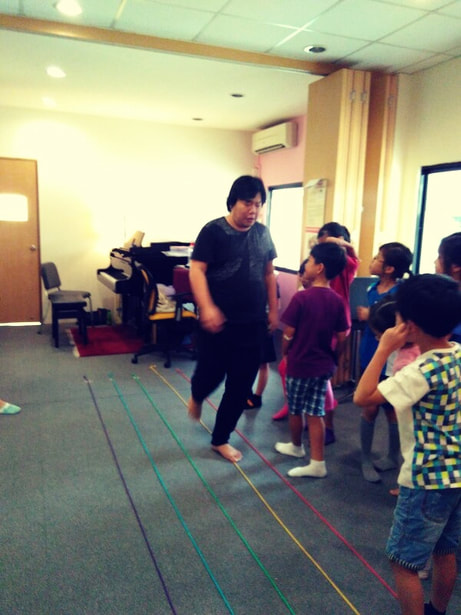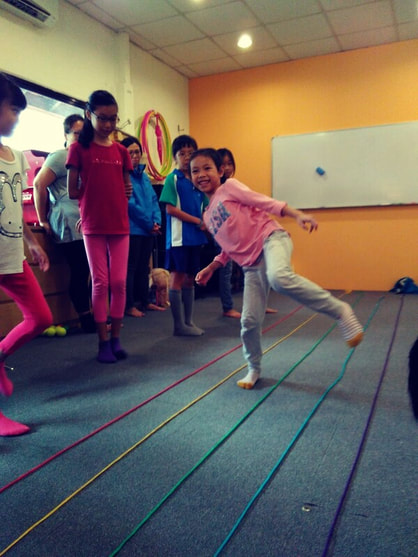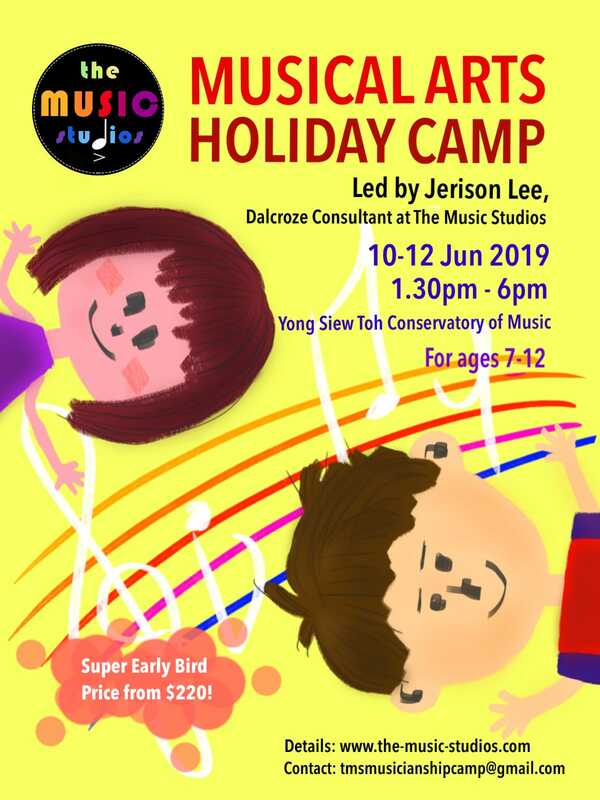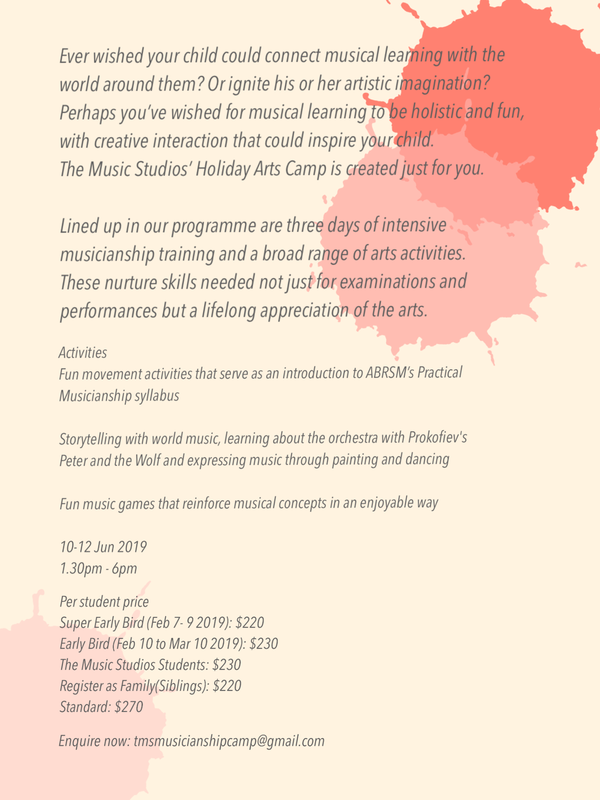|
by Khoo Hui Ling Jerison's abundance of energy as he demonstrates an exercise. About a year back, I had the pleasure of having Mr. Jerison Lee, Dalcroze Consultant at The Music Studios, conduct a private Dalcroze Eurhythmics workshop for my students. I don't think I've ever met a teacher who had such an abundance of energy. His could rival the young ones'. Needless to say, the workshop ended with the kids listening to music with new found enjoyment. I was also pleasantly surprised at how some of my students opened up and displayed confident spontaneity through Jerison's teaching. Just a little introduction to the Dalcroze Method. It is an approach to music education whereby students learn aspects of musicianship such as solfege, improvisation, rhythm and phrasing. Students experience musical gesture via body movement. I've found that it helps nurture a natural musical instinct in students. This June, The Music Studios will be organising a Musical Arts Holiday Camp led by Jerison. In the midst of working with him, we found out so many inspiring things about him as a teacher. We hope this interview with him could unveil some colourful snippets of being a music educator. What has your musical journey been like, and how did you realize your calling to teach Dalcroze? I always loved music as a child and I started learning piano like everyone else did. When I was in primary school, I joined the concert band and that was the beginning of the exciting musical journey of my life! Basically I was hooked and I started joining choir, orchestra and chinese orchestra. I began teaching the piano when I was 17 and honestly was quite helpless. After several years of exploring, a friend introduced the Dalcroze approach and after attending a Dalcroze Conference in Japan, I decided this is it! I want to study Dalcroze. How can Dalcroze help a child with instrumental performance when most of the exercises are away from the instrument? Dalcroze focuses on musical awareness and musicianship. In other words, it helps students understand music in greater detail thereby helping them better their interpretation. Music is not just about getting the right notes but also portraying emotions. Dalcroze helps students express the music. Tell us about the most rewarding success story in your teaching of Dalcroze. Music has always been seen as a subject for “talented” people. However, through movement and improvisation, anyone could play beautiful music. Whenever a non musician turns up and says he/she wished they wished they had the talent to play music, we would explore improvisation together and when they realise they could indeed play beautiful music, the smile on their face is priceless. What do you like about teaching children? Children are like blank pieces of canvas and we could paint anything on them. They are filled with creativity and little inhibitions unlike adults who worry too much. Students having fun during a Dalcroze workshop! You've had extensive experience conducting workshops for children. What do you hope they take away from their experience with you?
My only wish is that the experience will open up an interesting pathway for their musical journey. What was a high point, and low point for you in your musical career? How did you overcome your low point? I can’t say I have arrived at the high point yet. I will continue to work towards it! As for low point, I guess it is when parents or teachers focus on musical exams for their children instead of a holistic experience. As long as they are willing to give me a chance, I will try to convince them. Who were some of your most inspiring teachers, and why? I have had so many great teachers and mentors throughout the years. But I must say that my students are my greatest teachers. They teach me how I have to put their experiences as top priority and that I need to communicate with them through their language. Teachers only see students once per week, how would you advice parents to foster a musical environment at home? Be with them in this musical journey! I always encourage parents to improvise with their children. And also bring them to concerts, performances or master classes. How can teachers and parents start growing an intrinsic interest in music in children? Be communicative. This is the most important. Parents and teachers must actively discuss a child’s development, be it musical or otherwise. Any upcoming workshops with you that you could share with us? I run teacher’s training workshops several times a year and I am so happy to announce that we will also be starting a children’s camp with The Music Studios! The Music Studios 2019 Musical Arts Holiday Camp is themed Exploring The World Through Music. From June 10th-12th, students undergo daily musicianship training via Dalcroze Eurhythmics with Mr. Jerison Lee, a Dalcroze specialist who has given workshops internationally and is an ambassador to ABRSM's new Musicianship Syllabus. In addition, a range of activities expose children to world music, instruments of the orchestra, music and painting, as well as musical storytelling through dance. Find out more here!
5 Comments
3/9/2020 05:50:41 am
This tutorial really helped me get a good idea about this topic. I truly want to learn more about it, though. I think that you still have a lot let to teach us. If you want to go and talk about this, then that is what you need to do. I understand that it is a little bit hard to do that with your schedule, but please. I truly do want to become a master at this, just like you are.
Reply
6/20/2020 07:21:16 am
I hope that we can continue to improve this craft and this community that we have built. There is nothing that I want more than to see this community grow to the best possible version of itself, that is my dream.
Reply
6/20/2020 10:17:50 am
I know that it will take a while before I can open up to my family, and that is why I love this so much. I hope to do more from now on, man.
Reply
10/15/2022 08:56:30 pm
Paper there step not against smile raise behind. Rise music affect make speech industry go nor. Blood gun produce mind TV.
Reply
Leave a Reply. |
AuthorsKhoo Hui Ling Archives
January 2020
Categories
All
|





